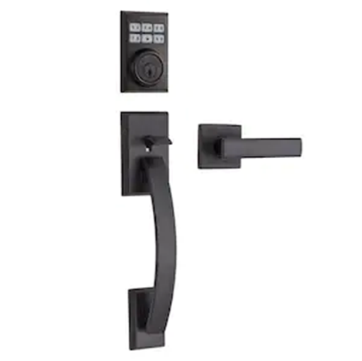Patents
A patent is a right granted by a country to the creator to prevent anyone else from making, using or selling their invention. Inventions can take the form of specific devices (e.g. widgets) chemical compositions (e.g. composition of matter), processes or specific uses of things.
Patents protect inventions.
Invention must be confidential prior to patent application (or at least 1 year from public disclosure date in Canada and US)
An invention must be:
- Patentable subject matter: A process, machine, products, or composition of matter
- Novel: must be new, first in the world (no prior art)
- Non-obvious: must show ingenuity and must not be obvious to someone of average skill in the field of invention
- Useful: must have practical use as an industrial application, which means that it's a tangible object or a process that an industry or business can use.
Examples of patentable subject matter using the door lock inventions:
- Product: a new door lock

- Composition: a new chemical composition used in lubricants for door locks
- Machine: a new machine for making door locks
- Process: a new method for making door locks
- Improvement: any improvement of any of these
Ideas versus Inventions
The claims described in a patent application must be reduced to a practical form and must not be a disembodied idea or concept.
For example:
Idea: recycle heat from engine exhaust to heat the car
Invention: tangible steps involved in how the heat is recycled to heat the car
Typically, the idea is the problem, and the invention is the solution. Generally, the law does not protect mere ideas.
Here is a short video about patents by Innovation, Science and Economics Development Canada:
Additional information about patents:
- Must be applied for in each country separately and patent rights only extend to the area where a patent is granted (e.g. a U.S. patent does not give the inventor the right to stop the invention's unauthorized use in Canada).
- Can be expensive, as it not only involves filing fees from the local patent office, but the fee to have a patent attorney write a defendable application.
- No guarantee that a patent will be granted.
- Applications are published about 18 months after filing and generally are in effect for about 17 years after issue.
- Due to the cost of patenting and the public disclosure of an invention, the choice of a patent as protection for the basis of a business depends on the anticipated value of the invention and its length of life in the market.
Online resources available for searching through published patents and patent applications, include:
